If your infant or toddler isn’t speaking a lot or seems to have a language delay, these six ways to promote language development work and are speech therapist approved. Find practical everyday strategies that will foster language development now.
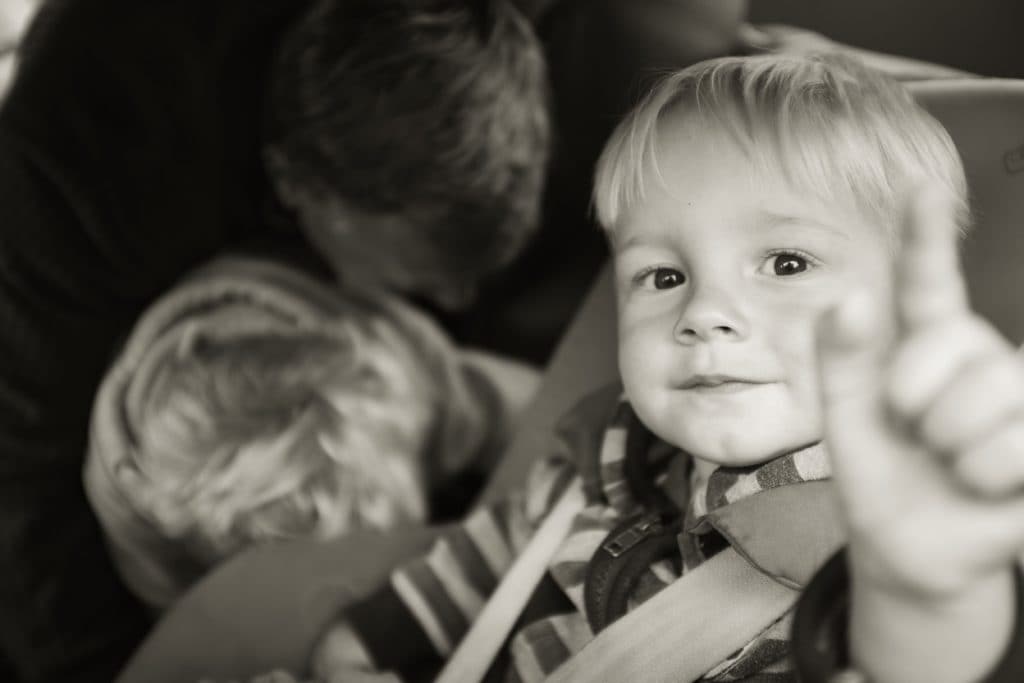
The silence from my son from infancy through to after his first birthday was deafening.
My daughter is only fifteen months older than he is. As a result, I had just witnessed very typical language development unfold. In fact, it could be argued now that her speech was even advanced. Hindsight, of course, being 20/20.
When my son was about six-months-old and not babbling, I chalked it up to gender or individual differences between him and his sister.
At a year, when there were next-to-no word approximations, I started to wonder…
Then, when we attended a health fair when he was fifteen months and a child development specialist recommended my son be assessed, I was crestfallen.
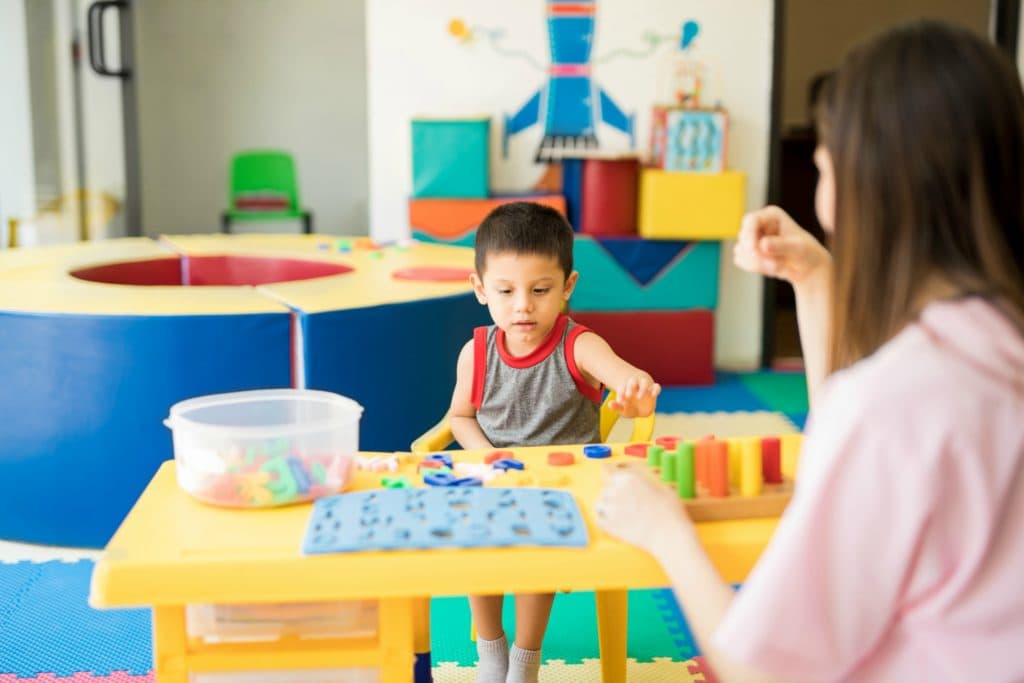
While I knew there was context to my son’s lack of words, he had a very verbal sister close in age and there are two languages in our home, it broke my heart to have him treated differently and not seen as everything he was versus what he was not yet doing.
Today, my son’s every word (as long as it isn’t ear-piercingly shrill) melts my heart and gives me great joy. At just past two, he regularly strings four words together and always punctuates his sentences with the person’s name he’s addressing. “More milk please, Mama?” “Oh thank you, Mama,” are classic examples of his airy, boy-ish phrases. While I’m not a speech pathologist or speech therapist, I definitely have found some incredible resources.
What’s unique in our family is that in being bilingual, we have helped scaffold our children’s language development first in English and now, are re-applying those same techniques to solidify their French. As a result of my experiences, I have been able to solidify some techniques that work quite well. Here are six very effective ways to promote language development in toddlers.
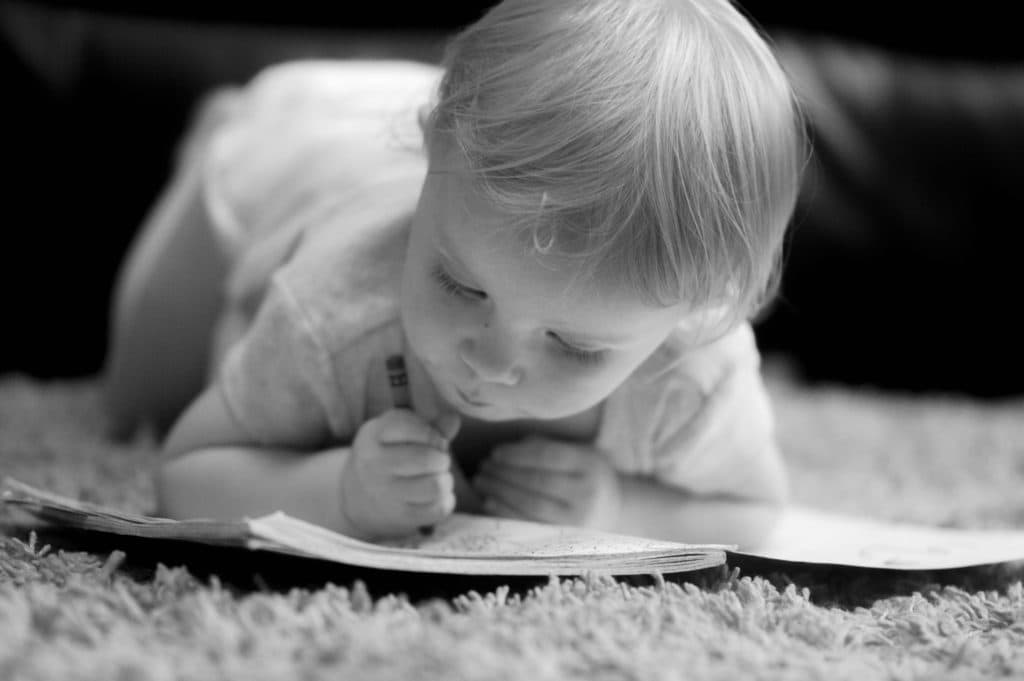
6 Ways To Promote Language Development In Your Toddler
1. Narrate their solo play and exploration.
In instances where they are focusing on a task (i.e. painting, building a tower, digging sand) narrate their every move. “Oh, you chose purple paint. Dip, dip your brush. Up, down, up-down. Now, you’re painting from side to side.”
Related reading: Effective Strategies to Promote Language Development in Infants
2. Give them the silence and space needed to take their turn.
Remember, in situations that are more dyadic than watching your child do something, it takes two to talk. Ask and then wait. At first, you’ll be waiting for sounds, eventually word approximations, and in time, actual words. In giving them prompts and waiting for their response with an eager, open facial expression you are cuing the child that they need to take a turn. This gives young children the opportunity to strengthen the fine motor muscles needed for speech. As parents, we naturally and habitually anticipate our children’s needs by, for instance, giving them milk when they seem whiny, bringing a toy down that they’re reaching for. In doing so, we are actually doing a disservice to their language development (especially when their language isn’t coming along quickly).
3. Read, read, read, read, read.
Oh and read some more. Children’s lit is filled with repetitive phrases, rhymes, patterns, and is rich with new vocabulary. “[T]he more words that are in a child’s language world, the more words they will learn, and the stronger their language skills are…” Dr. Pamela High of the American Academy of Pediatrics (read more here).
4. When reading, ask questions and leave out words that are easy to anticipate.
Starting with simple questions like, “Where’s the boy?” eventually moving to “What’s that?” (pointing to the boy) and then, “We don’t sleep on refrigerators! Where do we sleep?” Any lines that repeat or rhyme are great to omit a word from because they are the most obvious for your child to chime in with. For instance, “What’s that? What’s that?! WHAT’S ____!?!”
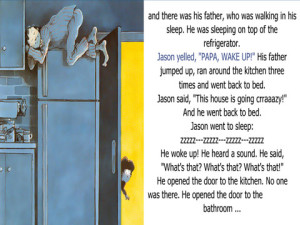
5. Don’t do essential things and pretend to be clueless.
At bath time, put them in the bath clothed, without water. At snack time, give them an empty plate. Or, when dressing them put their pants on their head. Then act like everything is normal and wait for any sort of expression to come. Of course, make this fun and silly.
Related reading: How to Promote Language Development While Reading
6. Sing as much as you read.
Singing develops phonological awareness, facilitates the retention of new vocabulary by means of repetition, and also increases retention (see an entire article on this here along with some great songs to help with language too).
When we started holding space for our son to speak more, his language started coming along. Soon, not only was he speaking, we were also able to hear his thoughts and ideas. He was less frustrated and we had the gift of getting to know our son more.
Photo by Josh Applegate on Unsplash
Photo by Drew Rae from Pexels







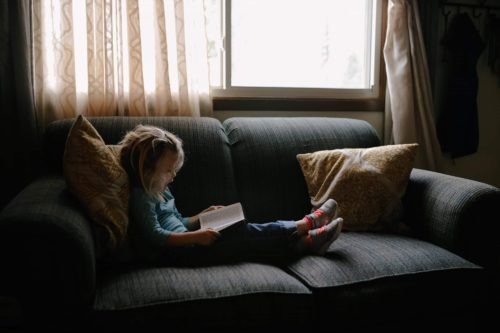
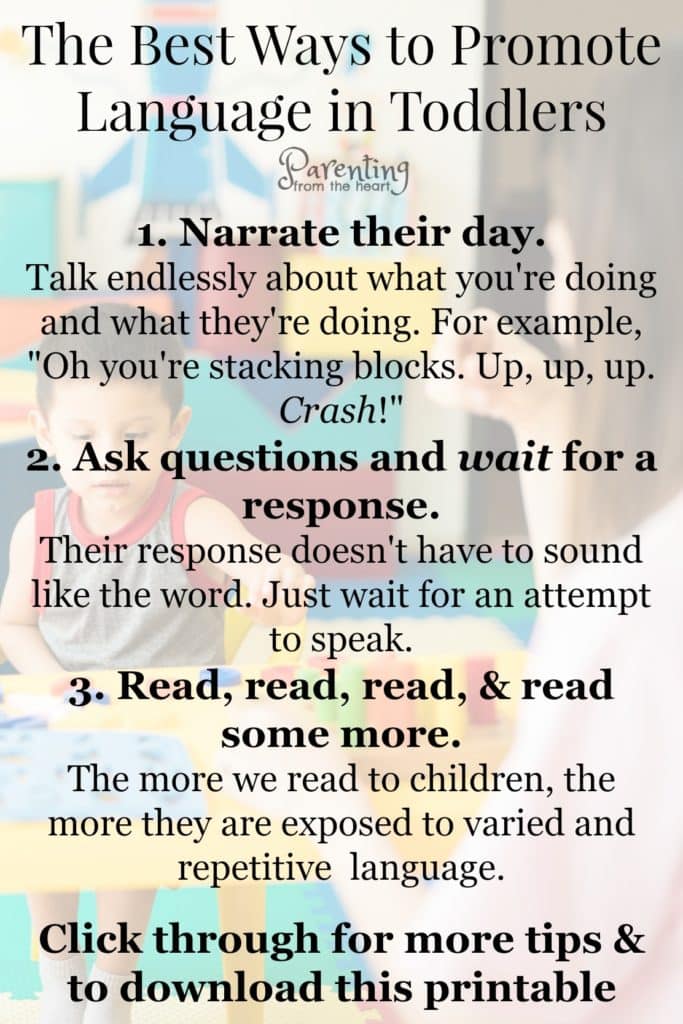
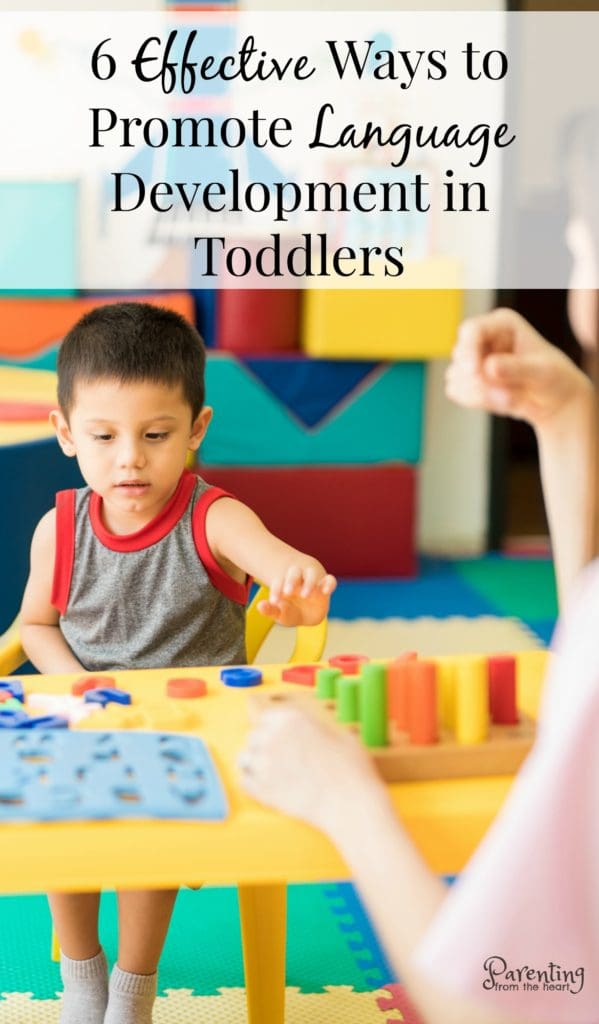
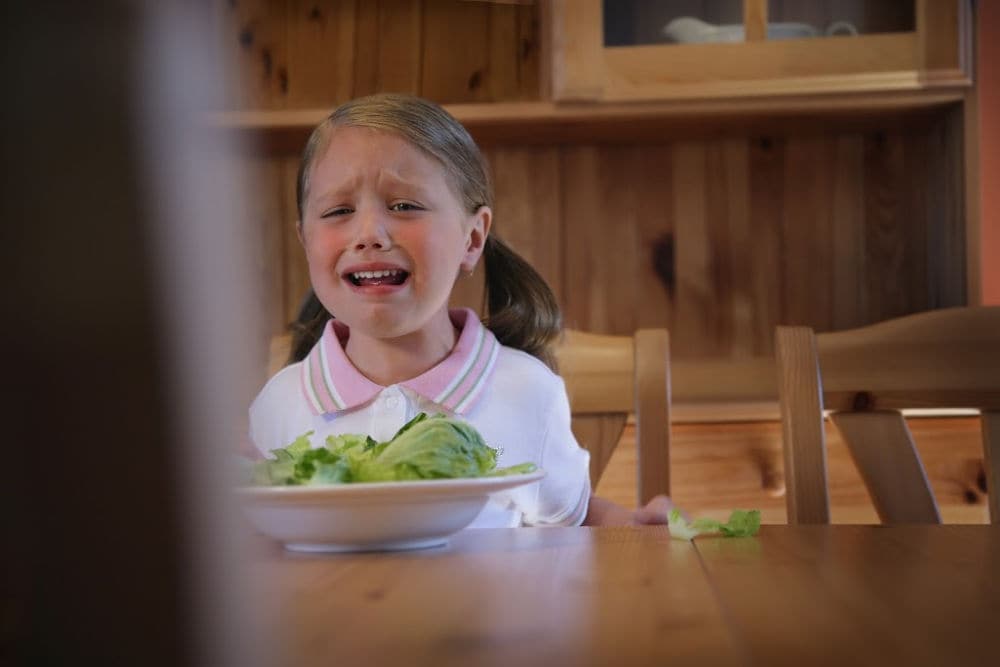



These are great tips! My son is over 2 and he’s still babbling. He has a few words here and there, but his big sis does a lot of the talking for him. His babbling actually increased exponentially last week when his sis started preschool. I will certainly be implementing these ideas. Thank you!!
You know what? I’ve noticed SUCH a difference in how much my little guy is saying as a result of my daughter being a preschool. When she’s gone, I can’t help but think “There YOU are!!!” Thanks so much for reading and sharing <3
I think sometimes when there is an older more talkative sibling around, you have to make sure that sibling doesn’t talk for the younger sibling. I know we have had that problem. These are wonderful tips!
Such great ideas! My twins talk a lot, but it is sometimes hard to understand them. I try to repeat many of the things they say with clear pronunciation, so they can learn. Reading and singing are two of my favorite ways to promote language. I love your idea about pretending to be clueless for ordinary situations! I’m going to try that out.
My daughter is eleven months an has no words yet. I am desperate for at least a “mama”! I’ll be trying a few of these ideas. I already narrate a lot but will have to start making it purposeful!
Great post! I have a friend who would benefit from this article. My son was always super advanced on verbal skills and language, but was late on crawling and walking. Each child has their own strengths and weaknesses. As parents, we want our kids to excell at everything…but realistically, we all need help in some areas! Very helpful, thank you for sharing!
http://www.HometownQueenBee.blogspot.com
I really, really can vouch for reading and singing doing wonders. I think, for a lot of children, it just helps language click :). I would also add conversing with your children like they’re adults. My toddler holds full conversations and uses words (or proper full sentences like you mentioned) that people are often taken aback by, but I know it’s really just because I speak to her like I would any other adult.
LOVE this. These tips are spot on, giving them space to talk can be so tough but is so important! It made me think of wearing my oldest when he was a baby, I would talk to him throughout the grocery store at like 2 months old and everyone looked at me like I was crazy 🙂
Reading is so important and has been essential for both of my girls and their language development. Number 5 is interesting, I’ll have to try that one out with my twins:)
My youngest just turned 2 so these are great strategies, espcially as we want him to be fluent in both my mother toungue and that of my husband so things like reading are crucial thank you for sharing
I love this! My 2 year old is finally putting sentences together and these tips will be helpful for her success in the future! Thank you!
Great tips you have here! My daughter is 4years old and is a little behind in speech, will definitely try these out! Thank you!
I can totally relate to this. My son is just over two now and saying a few words only. I have been so worried about it. His big sister though had no problem and talks our ears off. Will keep trying and put some of these tips in place. Thanks for sharing:)
These are wonderful tips! We read and sing all the time! I really think it helps language so much. I also love your number 5 idea. It helps to make things funny for them.
What great tips! My oldest daughter had a serious speech delay and although frustrating, there are definitely some things you can do to help!
I wonder who the friend Cindy was referring to is 😉 couldn’t possibly be me hehehe… But yeah language delays are pretty hard to deal with! My husband laughs at me all the time because I literally do narrat everything in my daughters life since that really does help kiddos! It looks and sounds funny to others, but it really does encourage vocalization, even if it’s just babbling. For us having my daughter around other little kids has helped the most ! She doesn’t have any cousins and the few friends we do have all have older kids who think she’s a baby and ignore her or play baby with her lol. So preschool has been a blessing for speech. They always say being a stay at home parent is the best thing, which obviously I thought was right since that’s what I did for 2 years, but for some kids school at a young age is just better for them. I wish I would of put my daughter in school sooner.
I used your post as inspiration for my latest post on my new blog! http://momtannica.com/talk/encouraging-toddler-language/ I love your summarized stratgies! Well done!
I’m Nannying a two yr old girl who just turned two on April 22nd.
I feel like these tips will be very helpful for when I’m with her as she’s
not saying a whole lot yet except pointing at objects and saying “DAT” lol.
Thanks!
This is a great list! All are awesome strategies to use at home, but it is still vital to see a specialist (speech language pathologist) both for an assessment and potentially treatment -so that all aspects of speech and langauage development are addressed. While some children do just take a little more time, others may have a language based disorder that requires more intensive and different models of treatment. Thank you for sharing!
Kristen, I really appreciate you emphasizing the need to see a speech therapist when needed. And, in truth, if someone wonders if they should go for an assessment, it’s better to air on the side of caution. I’ll add this to my post.